An Interview with Taras Grescoe, Author of Possess the Air
Possess the Air: Love, Heroism, and the Battle for the Soul of Mussolini’s Rome by Taras Grescoe came out on October 15th!
Whoever you are, you are sure to be a severe critic of Fascism, and you must feel the servile shame. But even you are responsible for your inaction. Do not seek to justify yourself with the illusion that there is nothing to be done. That is not true. Every person of courage and honour is quietly working for a free Italy. Even if you do not want to join us, there are still TEN THINGS which you can do. You can, and therefore you must.
These unsayable words, printed on leaflets that rained down on Mussolini’s headquarters in the heart of Rome at the height of the dictator’s power, drive the central drama of Possess the Air. This is the story of freedom fighters who defied Italy’s despot by opposing the rising tide of populism and xenophobia. Chief among them: poet and aviator Lauro de Bosis, firstborn of an Italian aristocrat and a New Englander, who transformed himself into a modern Icarus and amazed the world as he risked his life in the skies to bring Il Duce down. Taras Grescoe’s inspiring story of resistance, risk, and sacrifice paints a portrait of heroes in the fight against authoritarianism. This is an essential biography for our time.
Here is a Biblioasis interview with Taras Grescoe, author of Possess the Air.
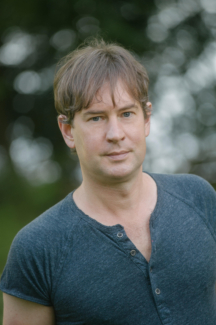
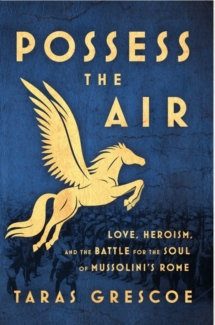
For those who are coming to your work for the first time, can you tell us a little about yourself and your writing?
I’m the son of writers. My parents started out as journalists, and became editors (they founded magazines in Vancouver, Calgary, and Edmonton) and authors. I grew up having every sentence I uttered analyzed, every story I told at the dinner table questioned and edited—for clarity, for logic, for good story-telling qualities. I loved to read, was curious about the world, and attended alternative schools where I was encouraged to write and research projects. In my teens and twenties, I resisted my apparent destiny—to be a writer—but around the age of 30, my background and training, perhaps my genes, kicked in. Since then, I’ve written seven books, and a whole lot of features for magazines and newspapers. I can’t stop myself. I alternate between turning my own experiences into stories—non-fiction narratives, for want of a better term in the English-speaking world—and, when I can’t get out into the world to have more experiences, looking for true stories that I think would make great books.
How did you first hear about Lauro de Bosis? What was your research process like?
Before Lauro, there was Rome. I visited it for the first time on assignment, following in the footsteps of Gregory Peck in Roman Holiday for a travel article for National Geographic Traveler. I had gone through a bad break-up in Montreal, it was February, and a week in Rome snapped me out of my heartbreak and torpor. Since then, I’ve been able to explore the city deeply, through repeat visits and obsessive reading.
I first encountered Lauro’s name while reading Iris Origo’s extraordinary memoir A Need to Testify. (Origo was an Anglo-American expat who bore witness to the rise of Fascism from her farm in a Tuscan valley.) Lauro’s courage and intelligence spoke to me, and when I learned he was a child of Rome, and his life was deeply entangled with the city’s history, I knew I’d found a story that would bring a lost city—Rome as it was before Mussolini and the Fascists remade it in their image—back to life.
The research involved on-the-ground visits to all the sites associated with the life of Lauro de Bosis—including the palazzo where he lived in Rome, now converted into the offices of an architectural firm. The book tells the parallel story of Gilbert and Mary Stewart Bagnani, a pair of Canadian archaeologists who witnessed the transformation of Rome under the Fascists, and I visited the places where they lived in Rome—including Gilbert’s childhood apartment, now the heavily-guarded German embassy. And I spent weeks in archives at Harvard, in New York, in Toronto and Peterborough poring over the letters and documents that helped me to tell their stories. The most remarkable of these institutions was the Archivio Centrale dello Stato in the Fascist-built Roman suburb of EUR, which houses the files of Mussolini’s political police, and where I found stories that shed light on what happened to Lauro after his successful attempt to bombard Mussolini’s palazzo in the center of Rome.
You called Possess the Air “an important story for our time” in light of our current political climate. Can you elaborate on that?
We’re living in a time when the strongman—the authoritarian, the autocrat, the dictator—is once again on the rise. Instead of radio and newsreels, the modern version of Mussolini is communicating through Twitter and cable-news networks. And people in the Western world once again seem willing to “voluntarily abandon free institutions”—which scholars agree is a crucial precondition of Fascism and authoritarianism. (I’m very much thinking of Trump and his disturbingly successful attacks on the free press, the judiciary, the rule of law, and all standards of decency, but also Bolsonaro in Brazil, Orbán in Hungary, and the figures of the xenophobic right on the rise in France, Italy, and Austria.) This is happening because the generation that remembers the sacrifices it took to defend these institutions—the generation that fought the Second World War, and oversaw the decades of peace and international cooperation that followed the war—is dying off.
When the Italian Fascists were seizing power through the use of violence, and Il Duce was giving that violence legitimacy by winking at the brutality invading everyday life, Lauro de Bosis chose to resist. He did it not in the name of Communism or Socialism, but in accordance with his own deep patriotism and love of liberty. His is the story of a principled individual took a courageous stand for liberty, reason, and peace at a time when his fellow citizens seemed all too willing to embrace irrationality and belligerent nationalism.
A National Post review for your previous book, Straphanger¸ called it “a book by somebody who loves cities for people who love them.” You’ve written about public transit, overfishing, and the underbelly of old China—all of your books have covered vastly different topics so far. How does Possess the Air fit into your body of work?
There is method to—or at least a rational explanation for—my apparent madness. I started out as a travelling writer, which I saw as a way of rubbing up against the world as a way of challenging and expanding my own worldview. After moving to Montreal from Vancouver, I explored my new home, Quebec, in Sacré Blues. For my second book, The End of Elsewhere, I put my belongings in storage and set out on a year-long voyage across Europe and Asia to look at the way mass tourism is changing the world. Three more polemical travelogues followed, in which I looked at issues that fascinated me: in The Devil’s Picnic, I explored the negative impact of prohibition; in Bottomfeeder, I looked at the devastating effect of human appetite and greed on our lakes, rivers, and oceans; in Straphanger, I made the case, through trips to 14 cities around the world, that our urban future is better
All of these books involved a lot of travel. When I became a father in my 40s, and decided to spend as much time as possible with my family in Montreal, I realized I could still travel—in time, and in my imagination. Shanghai Grand took me—and I hope my readers—to a lost world, the Treaty Port of Shanghai before the Communists took power in 1949. Possess the Air is a voyage to another lost world, the atmospheric Rome of the 1920s and 1930s, even as it was being transformed into the pretentious Third Rome of the Fascist imagination.
If there’s something that links all my books, though, it is writing about place. I fall in love with a spot on the globe—more often than not, a city—and strive to find a way to explore that place, and bring it to life on the page.
What are you reading right now?
I’m reading The Road to Oxiana, Robert Byron’s record of a voyage through Persia and Afghanistan in the 1930s. It’s an unjustly neglected masterpiece—Paul Fussell rightly calls it the Ulysess or Waste Land of modern travel writing—and the richest of texts imaginable. Discovering this prolific and intellectually challenging writer, whose pen was stilled when his ship was torpedoed in the Second World War when he was en route to Cairo, is an unexpected delight.
Possess the Air is available for purchase here.

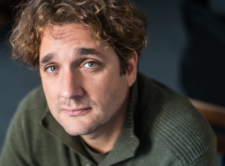
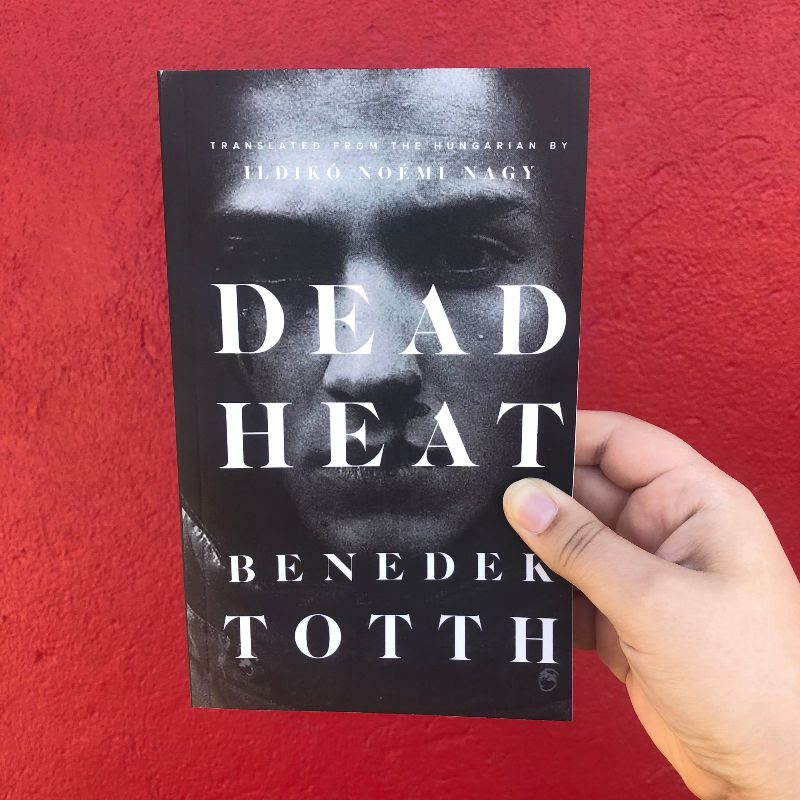
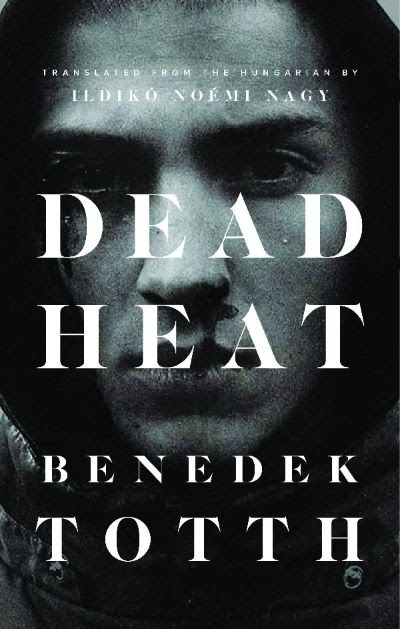

 K.D. Miller is the author of two previous short story collections (Give me Your Answer and Litany on a Time of Plague), a novel (Brown Dwarf), and an essay collection, Holy Writ. Her work All Saints was shortlisted for the 2014 Rogers Writers’ Trust Fiction Prize and longlisted for the 2014 Frank O’Connor Award. She read from her story collection Late Breaking, currently shortlisted for the Governor General’s Literary Award in the English Fiction category. She lives and writes in Toronto.
K.D. Miller is the author of two previous short story collections (Give me Your Answer and Litany on a Time of Plague), a novel (Brown Dwarf), and an essay collection, Holy Writ. Her work All Saints was shortlisted for the 2014 Rogers Writers’ Trust Fiction Prize and longlisted for the 2014 Frank O’Connor Award. She read from her story collection Late Breaking, currently shortlisted for the Governor General’s Literary Award in the English Fiction category. She lives and writes in Toronto. Stéphane Larue was born in Longueuil in 1983. He received a master’s in comparative literature at L’Université de Montréal and has worked in the restaurant industry for the past fifteen years. He lives in Montréal. He read from The Dishwasher, his first book.
Stéphane Larue was born in Longueuil in 1983. He received a master’s in comparative literature at L’Université de Montréal and has worked in the restaurant industry for the past fifteen years. He lives in Montréal. He read from The Dishwasher, his first book. Pauline Holdstock, who read from Here I Am!, is an internationally published novelist, short fiction writer and essayist. Her novels have been shortlisted for a number of awards, among them the Best First Novel Award, the Scotia Bank Giller prize and the Commonwealth Writers’ Prize. Her historical novel Beyond Measure was the winner of the BC Book Prizes Ethel Wilson Award for Fiction. The Hunter and the Wild Girl, her most recent book before Here I Am!, won the City of Victoria Butler Book Prize. Pauline lives just outside Victoria on Vancouver Island.
Pauline Holdstock, who read from Here I Am!, is an internationally published novelist, short fiction writer and essayist. Her novels have been shortlisted for a number of awards, among them the Best First Novel Award, the Scotia Bank Giller prize and the Commonwealth Writers’ Prize. Her historical novel Beyond Measure was the winner of the BC Book Prizes Ethel Wilson Award for Fiction. The Hunter and the Wild Girl, her most recent book before Here I Am!, won the City of Victoria Butler Book Prize. Pauline lives just outside Victoria on Vancouver Island. Catherine Leroux, who read from Madame Victoria, was born in 1979 in the Northern suburbs of Montreal. After holding various jobs she became a journalist and devoted herself to writing. Her first novel, Marche en forêt, was published in 2011 by Éditions Alto, and her newest novel is Madame Victoria (Éditions Alto, 2015). The Party Wall, her English-language debut published with Biblioasis in 2016, was selected for Indies Introduce for Summer/Fall 2016, was shortlisted for the 2016 Scotiabank Giller Prize, and won the 2016 Governor General’s Award for Translation.
Catherine Leroux, who read from Madame Victoria, was born in 1979 in the Northern suburbs of Montreal. After holding various jobs she became a journalist and devoted herself to writing. Her first novel, Marche en forêt, was published in 2011 by Éditions Alto, and her newest novel is Madame Victoria (Éditions Alto, 2015). The Party Wall, her English-language debut published with Biblioasis in 2016, was selected for Indies Introduce for Summer/Fall 2016, was shortlisted for the 2016 Scotiabank Giller Prize, and won the 2016 Governor General’s Award for Translation. Taras Grescoe, who read from Possess the Air, is the author of seven non-fiction books, including Sacré Blues, The End of Elsewhere, The Devil’s Picnic, Bottomfeeder, Straphanger, and Shanghai Grand. Bottomfeeder won the Writers’ Trust Prize for Nonfiction, the Mavis Gallant Prize for Non-fiction, and was a finalist for the William Saroyan International Prize for Writing. He has contributed to the New York Times, The Guardian, The New Yorker, Gourmet, and The Wall Street Journal. His books have been translated into half a dozen languages. He lives in Montreal.
Taras Grescoe, who read from Possess the Air, is the author of seven non-fiction books, including Sacré Blues, The End of Elsewhere, The Devil’s Picnic, Bottomfeeder, Straphanger, and Shanghai Grand. Bottomfeeder won the Writers’ Trust Prize for Nonfiction, the Mavis Gallant Prize for Non-fiction, and was a finalist for the William Saroyan International Prize for Writing. He has contributed to the New York Times, The Guardian, The New Yorker, Gourmet, and The Wall Street Journal. His books have been translated into half a dozen languages. He lives in Montreal. Martha Wilson read from Nosy White Woman. Her fiction has appeared in Best Canadian Stories 2017 and in the New Quarterly. She was runner-up for the 2017 Peter Hinchcliffe Fiction Prize and a finalist for the New South 2018 fiction prize. Her writing has also been in Real Simple, New York Times, Japan Times, Kansai Time Out, and International Herald-Tribune. She is American but for more than twenty years has made her home in Canada, where she lives with her husband and two daughters.
Martha Wilson read from Nosy White Woman. Her fiction has appeared in Best Canadian Stories 2017 and in the New Quarterly. She was runner-up for the 2017 Peter Hinchcliffe Fiction Prize and a finalist for the New South 2018 fiction prize. Her writing has also been in Real Simple, New York Times, Japan Times, Kansai Time Out, and International Herald-Tribune. She is American but for more than twenty years has made her home in Canada, where she lives with her husband and two daughters.
